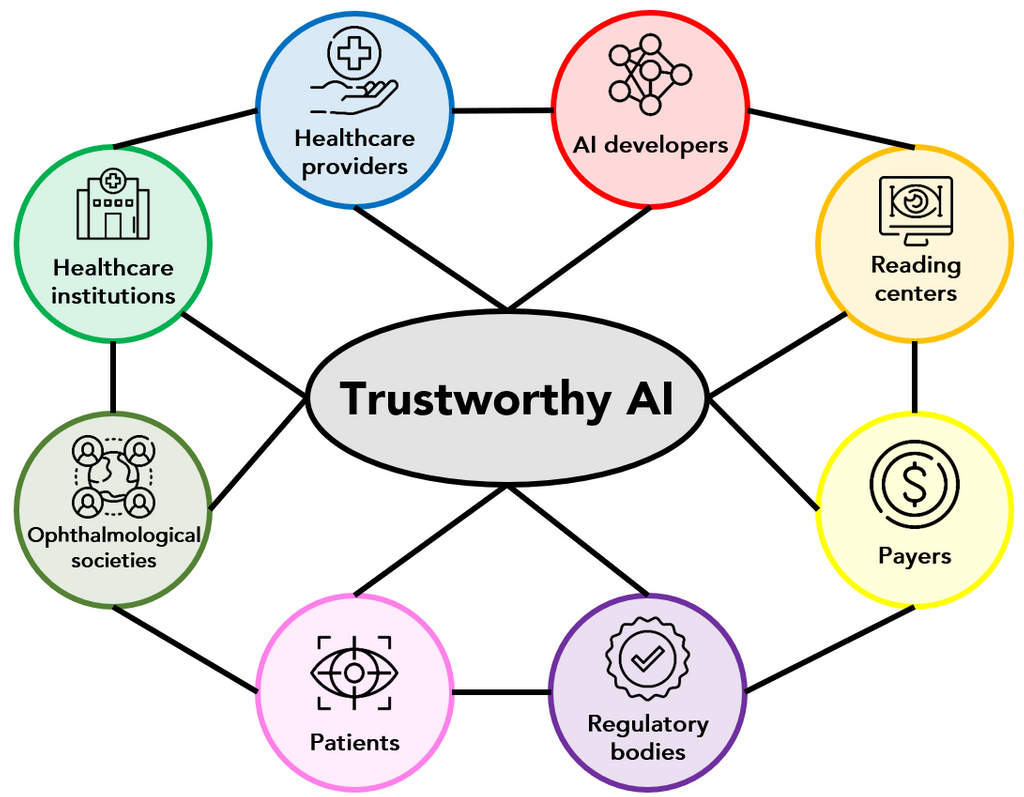New publication on Trustworthy AI in Progress in Retinal and Eye Research

The latest work by Cristina González-Gonzalo (qurAI Group, UvA / DIAG, Radboudumc) is titled “Trustworthy AI: Closing the gap between development and integration of AI systems in ophthalmic practice” and has been accepted for publication in Progress in Retinal and Eye Research (ranked #1 in Ophthalmology). The manuscript is now online and open access and can be found here.
In this work, Cristina González-Gonzalo and Prof. Clarisa Sánchez teamed up with an international group of experts in Ophthalmology, with the aim of analyzing the aspects and challenges that currently contribute to enlarge the gap between the development of AI systems and their integration in real-world ophthalmic settings. The team placed the different identified aspects within the AI design pipeline and provided mechanisms to generate systems that meet the requirements to be deemed trustworthy, including those concerning accuracy, resiliency, reliability, safety, and accountability. A key factor to make this possible was observed, present along the various stages of the AI design pipeline: the necessity for multistakeholder collaborations where the different parties involved in AI for healthcare are represented. In the case of AI for ophthalmic care: AI developers, reading centers, healthcare providers, healthcare institutions, ophthalmological societies and working groups or committees, patients, regulatory bodies, and payers.
This work contributes to establishing such multi-stakeholder interaction and the main action points to be taken so that the potential benefits of AI reach healthcare settings. The general findings in this manuscript translate therefore to other medical specialties, and are well aligned with the current direction of the field towards trustworthy AI, as set by different institutions, including the European Commission.
This work also aligns with the long-term programme for trustworthy AI (ROBUST consortium), recently approved by NWO. Healthcare is a core theme in the programme, which counts with the participation of multiple partners, including UvA and Radboudumc.
← Back to overview